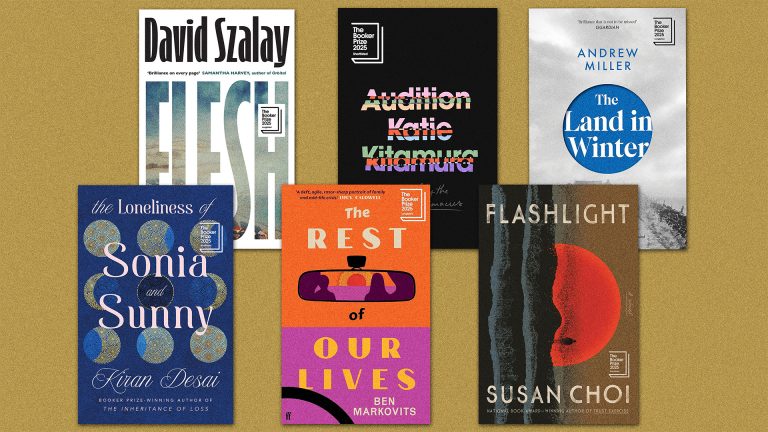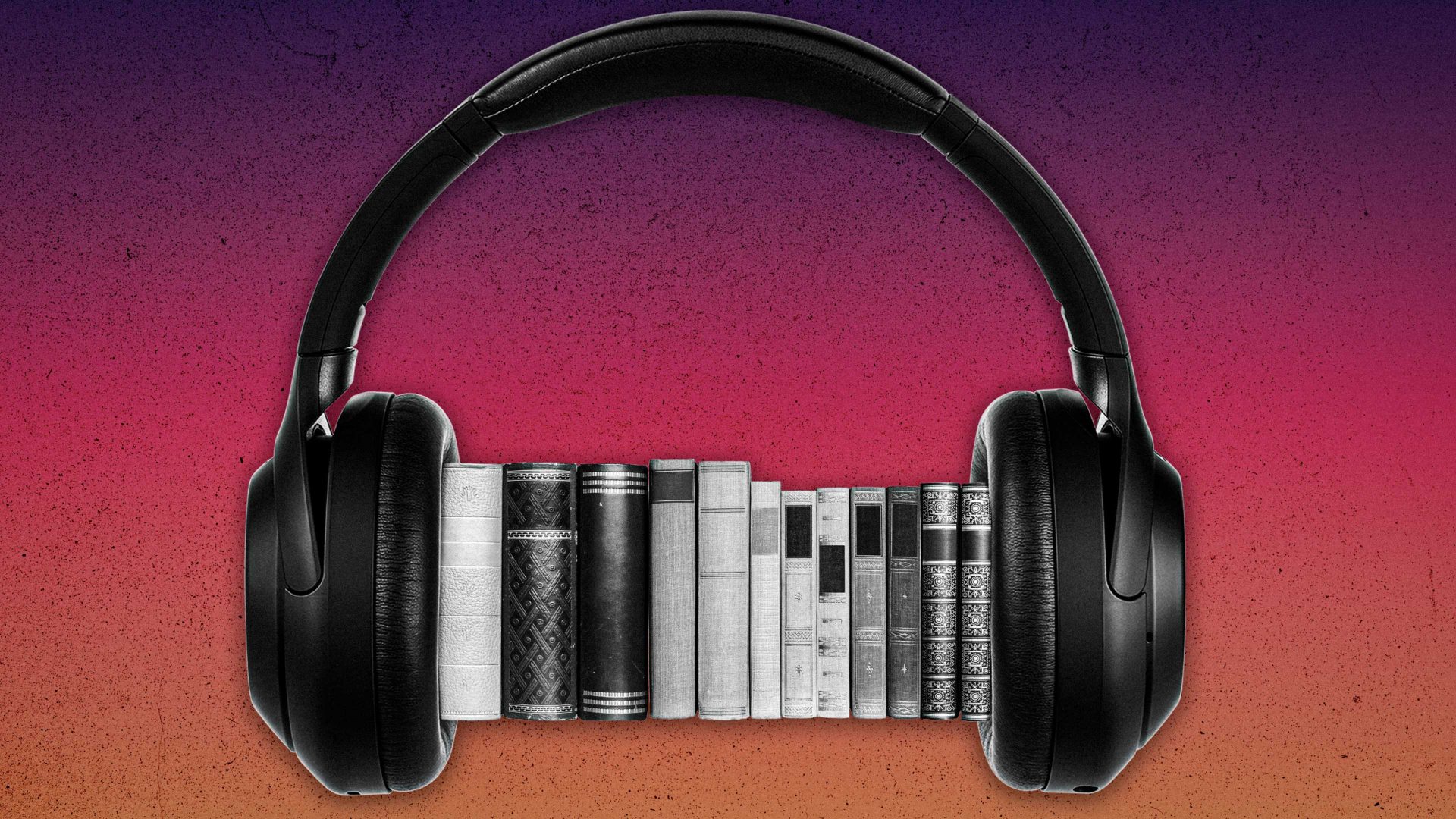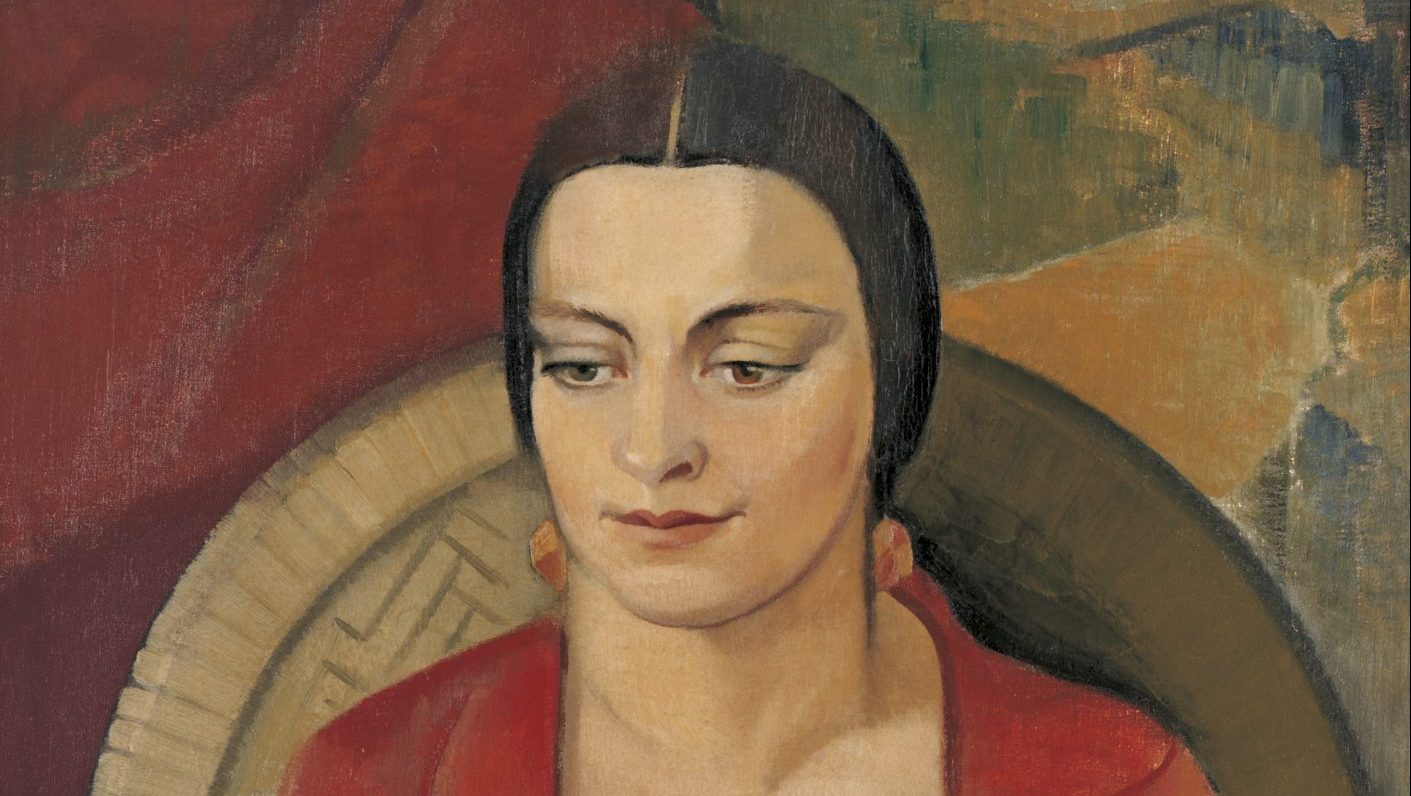For many, hearing a story, as opposed to reading one, is our first encounter with the magical world of books. The comfort of childhood bedtime stories, or long car journeys to far-flung holiday destinations accompanied by beloved books on tape, imprints storytelling on our DNA.
The existential question of whether listening to books is in some way inferior to reading has been answered in recent years. In a study published in the Journal of Neuroscience, researchers from UC Berkeley revealed that fiction stimulates the same cognitive and emotional areas, regardless of the medium. Whether we read or listen, stories have the same effect on us.
According to the Audio Publishers Association, audiobooks, particularly for younger readers, “build and enhance vital literacy skills such as fluency, vocabulary, language acquisition, pronunciation, phonemic awareness, and comprehension”. And, obviously, audiobooks offer untold benefits to people who are visually impaired, dyslexic, neurodiverse, to reluctant readers and English language learners.
Sales of audiobooks in recent years have boomed, outperforming every other sector of publishing. Both eBook and print book sales decreased in 2024, while audiobook revenue grew by 31%, suggesting that we’re turning away from reading in favour of listening.
A report from the National Literacy Trust suggests children enjoy listening to audio more than reading books. The most avid audiobook listeners are those aged 18 to 44, comprising 57% of the audience. So it seems that the next generation of readers are also moving towards the audiobook option and away from the written word.
But what does any of this mean for the future of books? Is there a danger that the audio variety could ever replace physical media?
Publishing in general, and audiobooks in particular, are dominated by the “Big Five” conglomerates: Penguin Random House, Hachette Book Group, HarperCollins, Macmillan Publishers, Simon & Schuster, alongside Amazon and its offshoots. Audible, Amazon’s audiobook wing, accounts for almost 65% of the market. Music streaming giant Spotify has decided to focus more on audiobooks, too, offering 200,000 free titles to subscribers alongside its stable of podcasts.
With sales of audiobooks providing the only growth for the publishing sector, the Big Five and Audible have invested heavily and are trying to diversify. Audible has begun to release celebrity-strewn dramas such as the recent Sam Mendes-produced Dickens titles. Soon there will also be full-cast Harry Potter adaptations featuring a full score, sound effects and more than 200 voice actors.
Spotify has trialled a “Follow Along” feature that, according to the company, offers “original custom art from several designers, which adds a rich visual layer that deepens narrative immersion.” Both companies hope that providing an enhanced, unique, star-studded audio experience will help their continued dominance of the market. They feel that audio is the future.
Andrew Rhomberg is a publishing industry analyst and the CEO of Jellybooks, which offers free eBooks to readers and collects data on reading experiences.
“Audiobooks are highly profitable for publishers that have scale,” Rhomberg said. “The production costs are higher, meaning the upfront investment is higher, but the retail prices are higher, too, so if the volumes are high, the profit from audiobooks is larger than that from print books, so publishers are the winners.”
As the large, traditional publishers pivot towards audio and see book sales decrease, the fate of physical media may fall to independent publishers, companies that focus on smaller print runs, books in translation and experimental literature. Kevin Duffy is the co-founder of the acclaimed Bluemoose Books, an indie that has recently seen its books The Gallows Pole (by Ben Myers) and Leonard and Hungry Paul (by Rónán Hession) turned into BBC dramas.
Suggested Reading


What the Booker Prize shortlist gets right – and wrong
Bluemoose and other notable indies such as Fitzcarraldo and Galley Beggar Press have upped their audiobook offerings, releasing audio versions on new platforms such as Spiracle, but competing with the big boys is always going to be a struggle.
“The big publishers, it’s just about shifting units,” Duffy said. “Independent publishers of our size, we’re operating in a completely different publishing universe. I mean, we don’t even try to compete. Why would we?”
Duffy confirmed that while Bluemoose was trying to produce more audiobooks, recognising the market trend, it can play havoc with already wafer-thin profit margins.
“If you pump a ton of money into an audiobook, then you’re just not going to get the sales to generate that kind of return,” he said. “Not within, for us, the first two years.”
So if the focus from the Big Five publishers is increasingly on audio, with younger readers preferring to listen rather than read, while sales of physical books fall and independent publishers struggle to compete in the marketplace, could the future of physical books be threatened?
There is another threat, too – from AI. Audible has already stated: “We are bringing new audiobooks to life through our own fully integrated, end-to-end AI production technology.” Soon, AI-generated voices will be able to narrate entire books in a variety of languages, reducing the overheads connected to audiobooks considerably.
The Writers’ Guide has stated: “AI narration and production of audiobooks is bad for the creative industry. A good audiobook requires a skilled reader and production team to bring out the nuance and meaning, creating a direct connection with the listener. That skilled work is worth paying for.” Equity claims the use of AI by Audible “subverts the very idea of human storytelling”.
But as the major publishers focus more and more on the bottom line, and independents struggle to keep up, it feels as if this use of AI is inevitable.
“Publishing is becoming more and more technology intensive, technology is expensive and favours fewer players, hence more consolidation among publishers,” Rhomberg told me. “AI has brought the audiobook production cost down sharply. This is going to lead to an explosion of content, and in some way also explains why large publishers are moving towards more elaborate and production-intensive editions, such as audiobooks with an entire ensemble cast of narrators.”
We’ve been here before, of course. A few years ago, eBooks heralded the death of print media. Why wouldn’t you want all of your books in one place, on one, easily transportable device? But strangely, readers didn’t. eBook sales plateaued, then declined. One issue was that some readers didn’t feel Kindle reading was “real reading” – there was some stigma attached to an eBook.
Audiobooks don’t have that problem. No one can judge you, as no one knows you’re doing it. A person wearing headphones on a train could be listening to the news, Captain Beefheart or the latest Tom Clancy. So there’s a chance that audiobooks could continue to grow in a way that eBooks didn’t. And while eBooks and physical books were the same product offered on different media, audiobooks are not. If audio does become the dominant format, then the way books are written will change. They will be written to be heard, rather than read.
Could this lead to books becoming some form of legacy media, like vinyl or LaserDiscs, created by niche companies, overpriced accordingly and consumed by a dwindling, dedicated band of devotees? Books have faced existential threats before, but never during a time when there’s been such competition for our time. With so much trying to grab our attention, could it be the old-fashioned written word that misses out?
The audiobook boom may just be a fad. Sales could plateau, and soon they might cohabit comfortably alongside physical media, enjoyed by those who like to listen. Or the publishing world’s inexhaustible desire for profit could relegate books to the dustbin of history. Let’s hope the writing’s not on the wall just yet.
Dale Shaw is a television and radio writer, journalist, fiction writer, performer and musician



